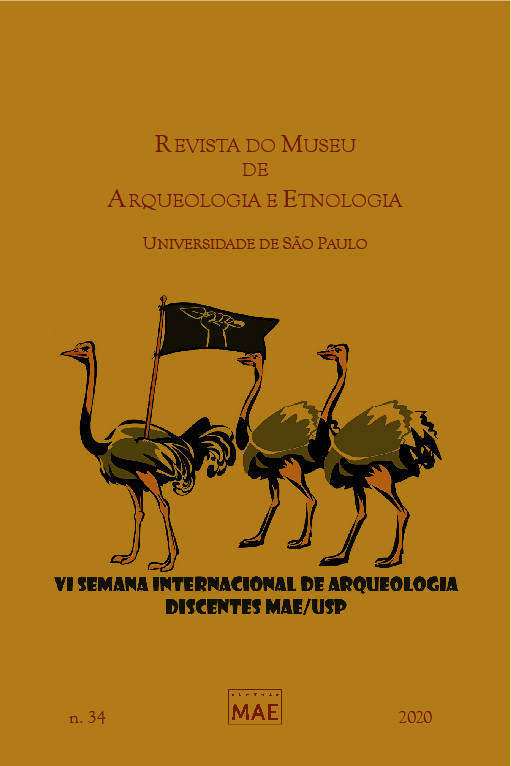Archeology, community, ancestry, and other subjects to think about quilombola identity
DOI:
https://doi.org/10.11606/issn.2448-1750.revmae.2020.163676Keywords:
Quilombola community of Galeão, Archaeology, Identity, AncestryAbstract
The theme of the IV International Week of Archeology MAE / USP Students turned around the pluralization of debates from perspectives that emphasized the concern with social and cultural contexts marginalized by societies, studies, institutions, etc. The periphery became center and the discussions were built from problems of forgotten and erased subjects and contexts. Thus, we emphasize the importance of talking about those on the margins, but even more so of the importance of letting them speak themselves and of creating possibilities for their voices to be heard. The table "Quilombola Archeologies" promoted the debate between different perspectives and the presence of Silvio Campos, along with the other researchers, confirms the urgency of rethinking our hierarchical university structures. We need to promote and value other forms of knowledge production and realize that we always have much to teach, but we have much more to learn from others. Silvio taught us about his community from his narratives, knowledge and experiences. After his participation at the table we talked a little more with him about his life, his community and archeology. The following interview presents some of the points we discussed.
Downloads
References
Oda, A. M. G. R. 2007. O banzo e outros males: o páthos dos negros escravos na Memória de Oliveira Mendes. Revista Latinoamericana de Psicopatologia Fundamental, 10 (2), pp. 348.
Schwartz, S. B. 2001. Escravos, roceiros e rebeldes. Trad. Jussara Simões. Bauru (SP): Edusc, 2001.
Downloads
Published
Issue
Section
License
Copyright (c) 2020 Fabio Guaraldo Almeida, Michelle Borges Pedroso, Sílvio Campos

This work is licensed under a Creative Commons Attribution-NonCommercial-NoDerivatives 4.0 International License.













